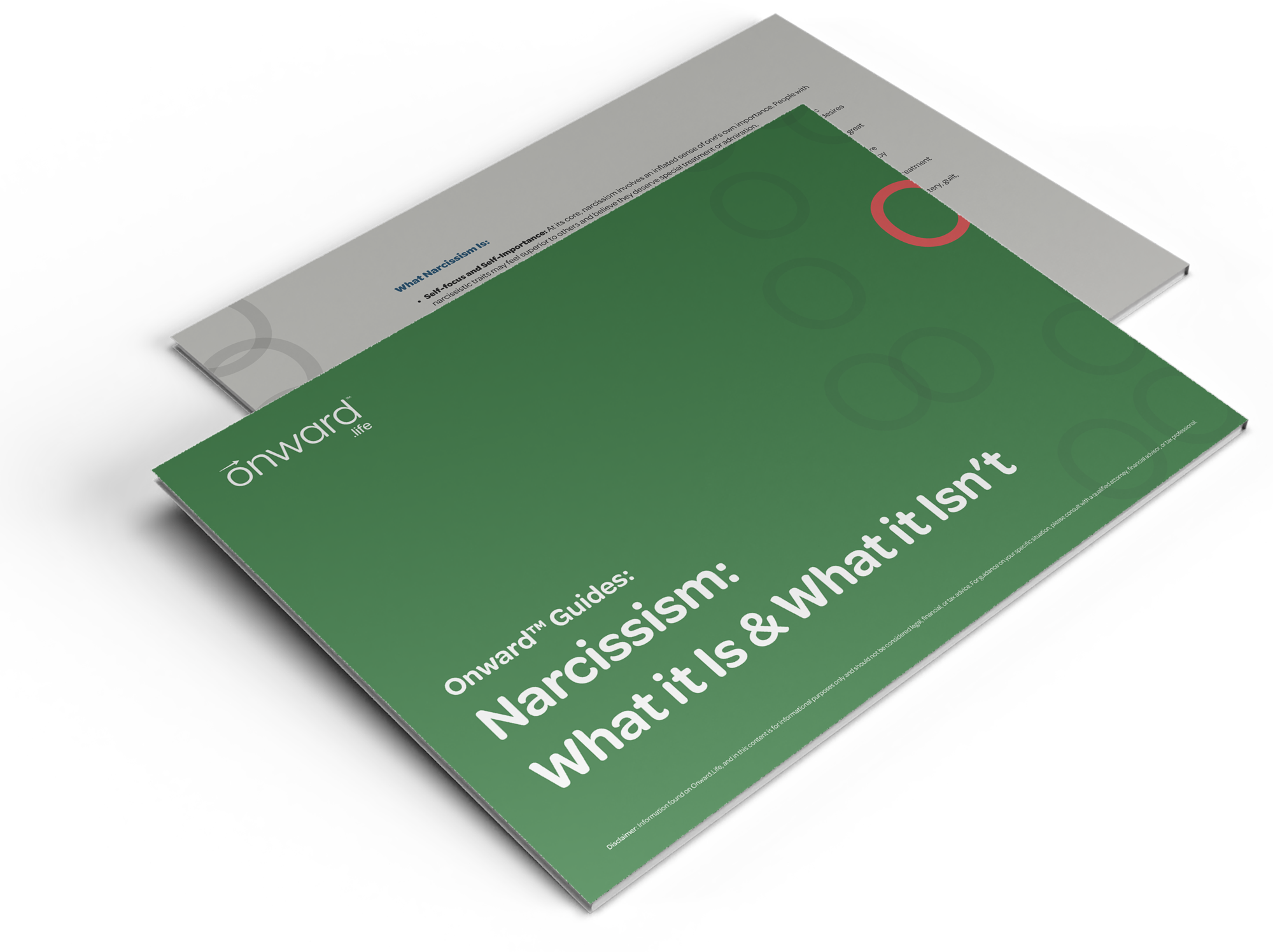Key Differences Between Narcissism and Narcissistic Personality Disorder (NPD)
Narcissistic traits (like self-centeredness or vanity) can exist on a spectrum and may not always be harmful or pathological. In fact, many people display some narcissistic traits without having NPD.
NPD, on the other hand, is a formal diagnosis and involves a pervasive pattern of grandiosity, a need for admiration, and a lack of empathy that affects all areas of life, often leading to significant problems in relationships, work, and personal functioning.
Narcissistic Personality Disorder should only be diagnosed by a clinical professional.
NPD Symptoms:
- A grandiose sense of one’s own importance
- Preoccupation with fantasies of success, power, or beauty
- Believing they are “special” or unique and can only be understood by other high-status people
- Requiring excessive admiration
- Sense of entitlement
- Exploitative relationships (using others for personal gain)
- Lack of empathy
- Envy of others or believing others are envious of them
- Arrogant or haughty behaviors or attitudes
In other words, narcissism can range from a few self-centered tendencies to a more severe personality disorder. Healthy self-love or confidence is not narcissism, but when the traits of narcissism become pervasive and damaging, they may indicate a deeper issue such as NPD. Healthy relationships and a balanced sense of self-worth are key to navigating narcissistic tendencies in a way that doesn’t negatively affect others.



